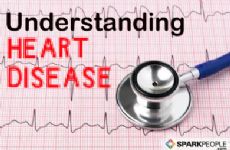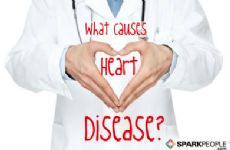|
How many of you have watched a movie or TV show where one of the characters, who has experienced a stressful situation in her life, suffers from what appears to be a classic heart attack but isn't? While this may sound a little farfetched, doctors are beginning to recognize a condition that mimics a heart attack, but after further testing there is little or no sign of cardiovascular disease. Doctors refer to this condition as stress cardiomyopathy, also known as broken heart syndrome. In all my years in nursing and reading up on health matters I have never heard of this syndrome before, until I came across an article in the Spring 2010 issue of Better Homes and Gardens Heart-Healthy Living Magazine. After doing my own research, I discovered that broken heart syndrome can mimic a true heart attack but does not cause death or irreversible damage to the heart like a classic heart attack can. However, the two conditions can be difficult to differentiate when a patient presents to the emergency room with chest pains, shortness of breath, nausea and in some cases even heart stoppage. In a February 2005 article published in the New England Journal of Medicine, researchers at Johns Hopkins University School of Medicine released the findings regarding the signs and symptoms of broken heart syndrome and how it varies from the common heart attack. Unlike the classic heart attack which occurs when the arteries of the heart become blocked, researchers believe broken heart syndrome occurs after the heart has been exposed to large amounts of stress hormones, such as adrenaline and norepinephrine, over a period of time that actually "stun" the heart. This usually occurs after the patient has been under an undo amount of stress, but not always. Although broken heart syndrome is rare, when it does hit, it tends to strike older women who are quite healthy otherwise, but who have undergone a period of stress in their lives. They often arrive to the emergency room with classic heart attack symptoms, however after further testing, there appears to be no cardiac disease found. The positive side to this is there is no long term, irreversible damage to the heart itself and recurrence is rare. So what should one do? As always, if you experience any chest pain, shortness of breath, anxiousness, etc, call 911. Remember heart disease is the number one killer of women and ignoring symptoms can be the difference between death and recovery. Have you ever heard of broken heart syndrome? Have you ever suffered from it yourself? |
More From SparkPeople
|





















